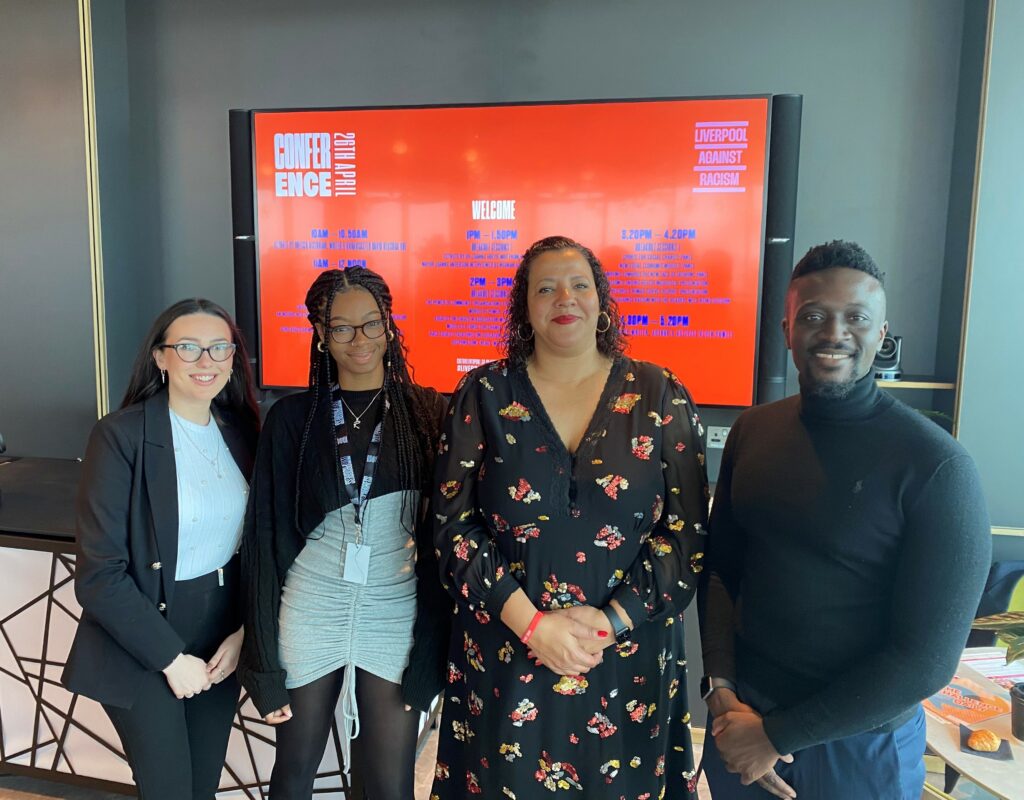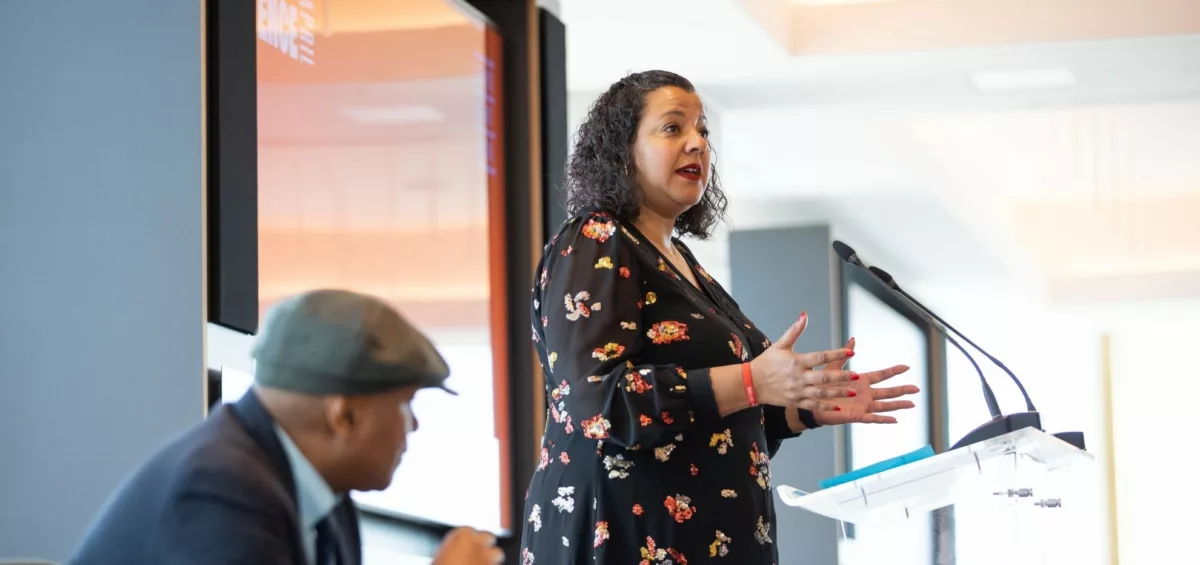Members of CEL Solicitors’ diversity committee attended the Liverpool Against Racism conference. The event combined industry leaders from education, sport, media, fashion, and technology to take part in discussions and debates around systematic racism in today’s society. Legal advisor, Seun writes about his experience.
Stories from the US of historical and modern forms of lynching, prison industrial complexes and environmental racism often leave European, particularly British citizens with the misconception that racism is a something unique to the US. However, racism, like all oppressive systems, simply manifests in a different way culturally. An example of such racism present in the UK is the lack of social mobility for people of colour.
Keynote Speaker: Mayor Joanne Anderson
Liverpool has had black inhabitants since the 1730s, yet it would take 300 years until its first black female mayor, Joanne Anderson would be elected.
Speaking at the Liverpool Against Racism conference, Mayor Joanne echoed the voices of many in attendance. She spoke of the unconscious, and sometimes explicit bias that black Britons, and other Britons of colour face across the UK, and within the city of Liverpool. It was evident hearing from leaders, professionals, and experts like Joanne that racism, and thus anti-racism requires the attention of the collective, on a regular and consistent basis.

Celeste, Rebecca and Seun with Liverpool Mayor Joanne Anderson
Keynote Speaker: David Olusoga OBE
Keynote speaker and British historian David Olusoga OBE’s lecture on the historical backdrop for racism in the United Kingdom was incredibly illuminating but also unsurprising for a Nigerian Briton whose home nation’s official language is English. Colonialism and the slave trade were machines well-oiled by stereotypes and half-truths that justified and maintained a racial hierarchy which saw blackness as the symbolic and literal opposite to whiteness. And a lot of those stereotypes persist even today.
To justify their transportation across the globe as property, black people were portrayed as animalistic, hyperaggressive and physically strong. Mental intellect, culture, and civilisation however was something they seemingly lacked. Today as black Britons, we still see the remnants of this kind of British neo-colonial thinking. Black footballers suffer vile racial abuse for missing goals; their humanity takes second place to their ability to perform labour. Black people are certainly not allowed to be royals without constant demonisation.
For hundreds of years, the integration of black people into British society has often been made difficult by our lived experiences across the medical, socioeconomic, and professional areas we must inhabit and attempt to navigate.

Photo by Robin Clewley
Racism and Health Inequity Presentation: Andrew Lynch
In his presentation on ‘Racism & Ending Health Inequities’, Andrew Lynch from the NHS explored the very tangible impact of racial discrimination on the medical services provided to black people and other people of colour. A report from 2021 shows black women are still four times more likely to die than white women from pregnancy related complications.
Diversity & Inclusion Presentation: Dr Joanna Abeyie MBE
A seminar by Dr Joanna Abeyie MBE, ‘The Case for Diversity & Inclusion’ highlighted the impact of racial discrimination on black professionals, and indeed all professionals of colour. The McGregor-Smith Review showed that BAME people are less likely to be employed than white people, have fewer promotional opportunities, are more likely to face disciplinary action, and have their performances evaluated more harshly than their white colleagues.

Photo by Robin Clewley
The conference wonderfully highlighted that while change at times feels frustratingly slow, the future is full of hope. Change is happening on social and structural levels. This drive for change however, cannot be left in the hands of passionate individuals or indeed oppressed social groups. Anti-racism requires consistent, collective action from all, regardless of social standing.













